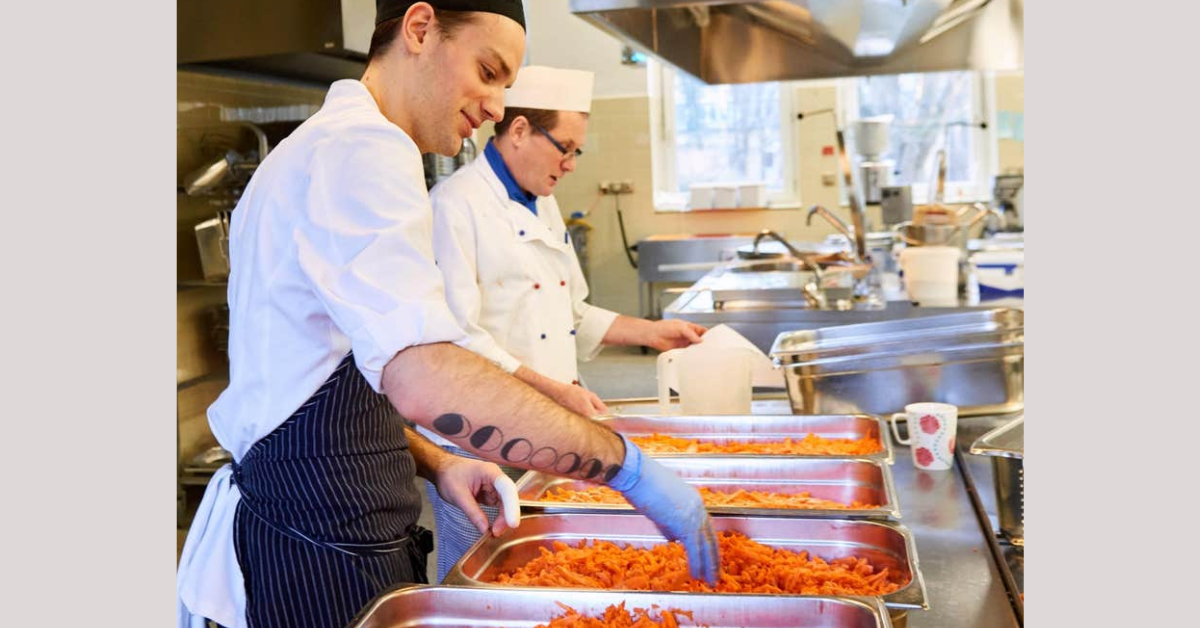Food Safety Course Level 1 – A Step Towards Healthier and Safer Practices
Food safety is one of the most critical aspects of maintaining public health, and awareness about it has grown significantly in recent years. Whether you are working in the food industry, running a small food business, or simply interested in learning how to handle food more safely at home, gaining proper training is essential. A Food Safety Course Level 1 is designed as an entry-level qualification that provides individuals with the basic knowledge and skills needed to ensure safe food handling and hygiene practices. This type of training is highly valuable not only for professionals working in catering and hospitality but also for anyone who prepares or serves food.
Why Food Safety Matters
Every year, millions of people around the world suffer from foodborne illnesses caused by consuming contaminated or improperly handled food. These illnesses range from mild stomach discomfort to severe, life-threatening conditions. Many of these cases could be avoided if food handlers followed proper hygiene and food safety practices.
When food safety is neglected, the risks include:
-
Food poisoning outbreaks that can harm consumers and damage a business’s reputation.
-
Cross-contamination from raw food to cooked items or from improper storage.
-
Growth of harmful bacteria due to poor temperature control.
-
Legal and financial consequences for food businesses that fail to comply with health regulations.
Training through structured courses ensures that food handlers understand these risks and are prepared to manage them effectively.
What is a Food Safety Course Level 1?
A Food Safety Course Level 1 is the foundation level training in food safety, suitable for beginners or individuals who are new to working with food. This course introduces learners to the fundamental principles of food hygiene and prepares them for working in any environment where food is prepared, cooked, or served.
Typically, Level 1 training covers:
-
Introduction to food safety – Understanding why food safety matters.
-
Personal hygiene – Proper handwashing techniques, wearing protective clothing, and maintaining cleanliness.
-
Food storage – Learning safe storage methods to prevent contamination and spoilage.
-
Temperature control – Understanding the importance of cooking and storing food at correct temperatures.
-
Cross-contamination prevention – How to handle raw and cooked food separately.
-
Cleaning and sanitization – Proper cleaning procedures for equipment, utensils, and work areas.
This course is ideal for individuals working in support roles, such as food delivery drivers, kitchen porters, and servers, or for people handling low-risk food. It is also an excellent starting point for those looking to progress to higher-level food safety training in the future.
Who Should Take the Course?
Food safety training is relevant to a wide range of people. A Food Safety Course Level 1 is especially recommended for:
-
Employees who are new to the catering and hospitality industry.
-
Food handlers in restaurants, cafes, and fast-food outlets.
-
Kitchen assistants, cleaners, and support staff in food businesses.
-
Volunteers working in community kitchens, schools, or care facilities.
-
Individuals preparing to move into more advanced roles in food handling.
Even those who cook at home can benefit from such training, as it provides insights into best practices for handling food safely in everyday life.
Benefits of Taking a Food Safety Course
Completing a structured course in food safety offers a range of benefits that go beyond just meeting legal requirements. Some of the key advantages include:
-
Enhanced knowledge and confidence – Participants learn practical skills that give them the confidence to handle food safely in any environment.
-
Compliance with regulations – Many countries legally require food businesses to ensure that their staff are adequately trained in food hygiene.
-
Improved workplace standards – Trained staff contribute to a cleaner, safer working environment.
-
Consumer trust and satisfaction – Customers are more likely to trust businesses that prioritize food safety, leading to repeat business and positive reviews.
-
Career opportunities – For individuals, having food safety certification can improve employability in the food industry.
What You Can Expect to Learn
Participants in a Food Safety Course Level 1 will not only learn theory but also gain practical insights into food hygiene practices. For instance, they will understand how harmful bacteria spread, why handwashing at the correct times is vital, and how to use protective equipment effectively.
The course often includes interactive examples, case studies, and simple assessments to test understanding. By the end, learners will have a clear idea of the do’s and don’ts of food handling, which they can apply immediately in their workplace or home.
Importance for Businesses
For food businesses, ensuring that all staff members have at least a basic understanding of food safety is critical. Even if employees are not directly involved in cooking, they may still come into contact with food during delivery, storage, or serving. By providing training such as a Food Safety Course Level 1, employers can reduce the risk of accidents, contamination, and potential outbreaks.
Moreover, regulatory authorities often inspect food businesses to ensure compliance with hygiene standards. Having trained staff not only demonstrates compliance but also minimizes the risk of fines, closures, and reputational damage.
Career Growth Through Food Safety Training
While Level 1 training is entry-level, it forms the foundation for career growth in the food industry. Individuals who wish to progress can move on to Food Safety Level 2 and beyond, where they learn more advanced topics such as hazard analysis, allergen management, and supervisory responsibilities.
Employers also value staff members who take initiative to upskill themselves. Having a Level 1 certificate shows dedication and professionalism, qualities that can help employees stand out in a competitive job market.
Conclusion
Food safety is not just about regulations; it is about protecting health, building trust, and maintaining high standards in any environment where food is handled. A Food Safety Course Level 1 provides the essential knowledge required to begin this journey, making it a crucial step for individuals and businesses alike.
By completing this training, participants not only safeguard the people they serve but also open doors to greater career opportunities. Whether you are starting a new job in the food industry, volunteering in a community kitchen, or simply wanting to enhance your food handling practices at home, this course equips you with the right tools to ensure safety and hygiene.
In today’s world, where consumers are more conscious than ever about what they eat, investing in food safety training is not just a requirement—it is a responsibility.







